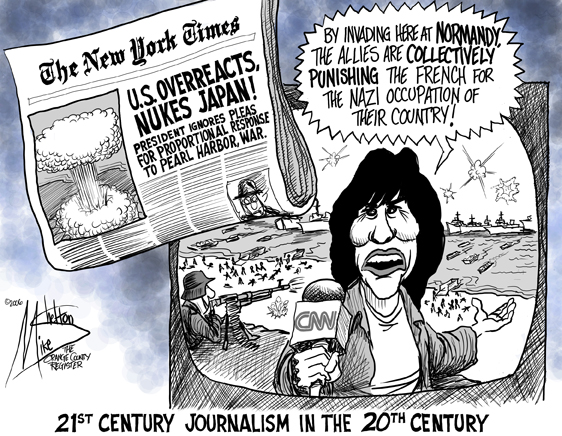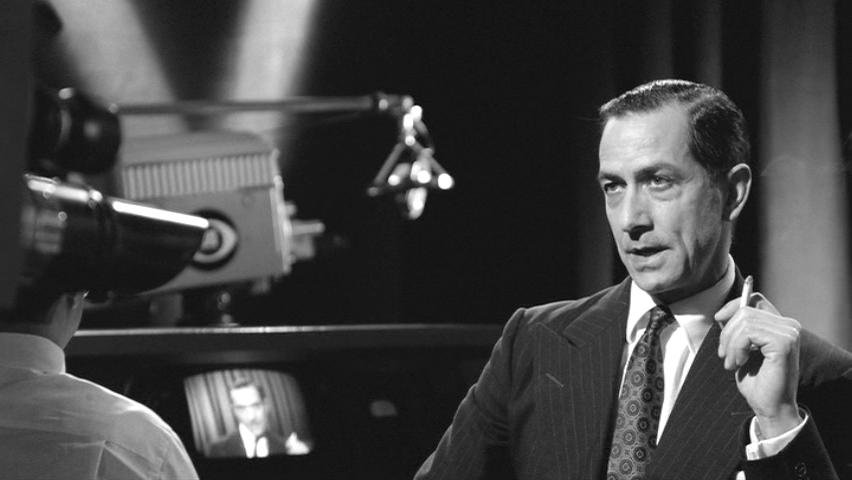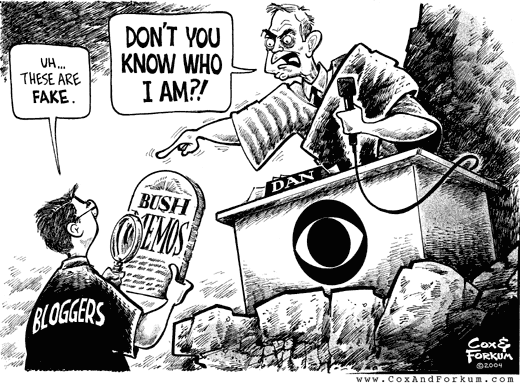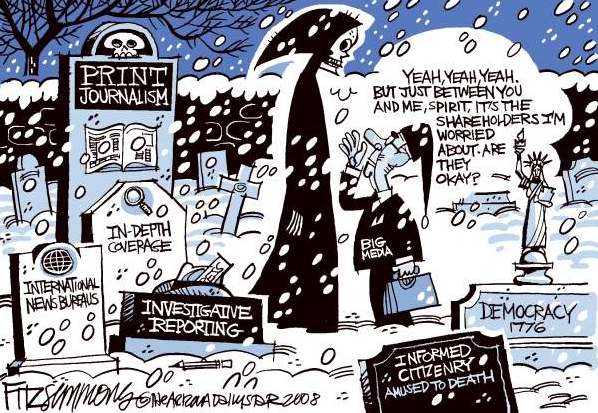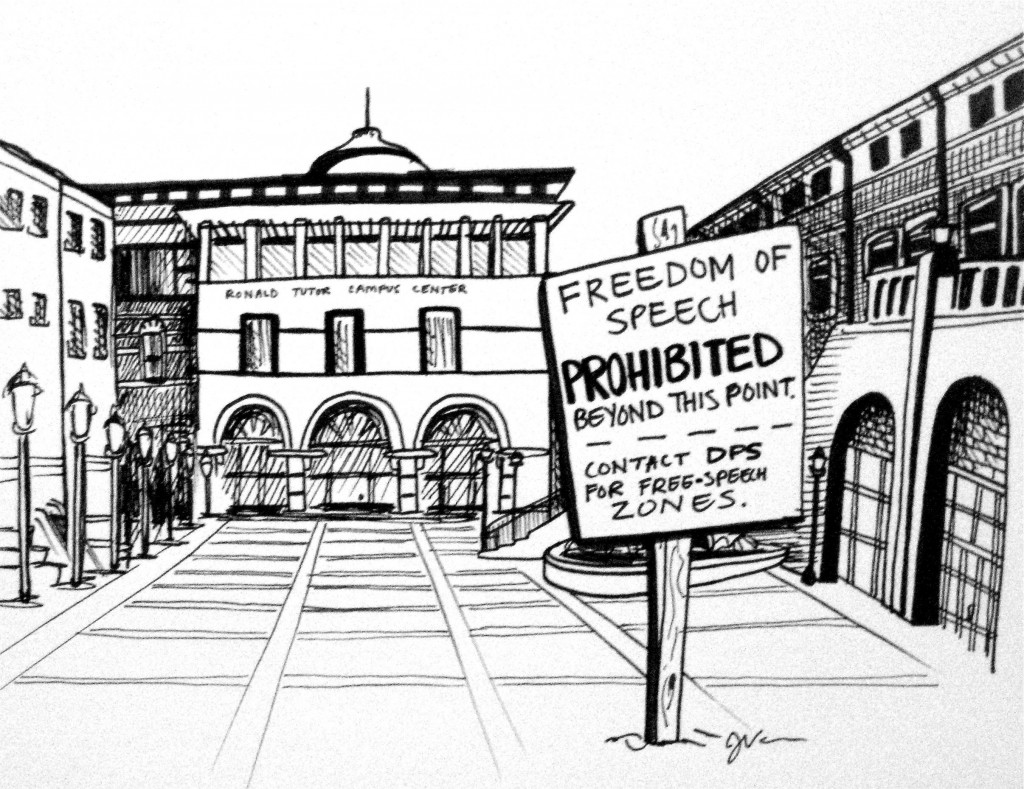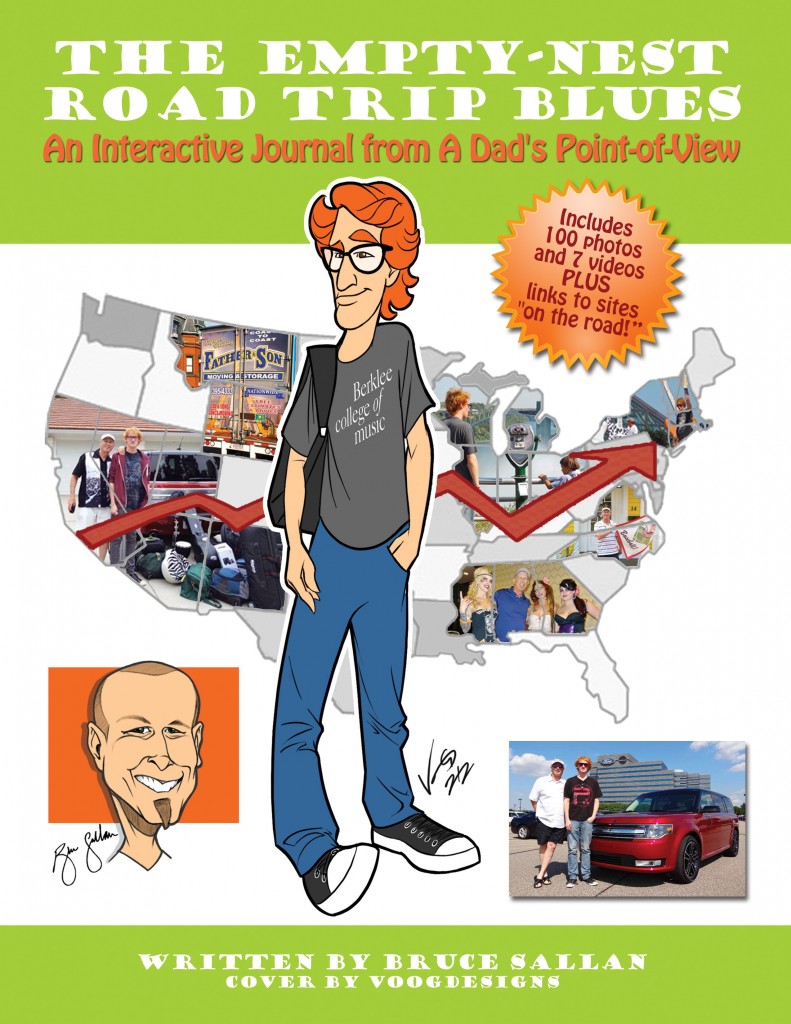By Professor Kenna Griffin* and Bruce Sallan
Bruce Sallan: One of the many joys of Social Media is the incredible people we meet. Many of these “virtual” friends as I like to call them, eventually become IRL (In Real Life) friends and many stay “virtual,” as has my friendship with Professor Griffin. We’ve gotten to “know” one another via Twitter and our regular participation in certain Tweet Chats.
We’ve also had the occasional bashing of heads or, to put in more diplomatically, respectful disagreements because that is really what they’ve been. An ongoing debate we’ve had is about the state of contemporary journalism. I tend to rant and rage about the bias in most media and Professor Griffin tends to disagree with me.
So, we’ve decided to have a debate on this issue in written form, going back and forth, and we’ll let you readers judge a winner or simply offer your opinion in the form of a comment. Our objective is not to win this debate but to express our thoughts and let others digest and give their feedback and add to the discussion.
I’ll start off by declaring the main things that I often assert that seem to raise the Professor’s ire. First, I often say that “Journalism is dead” and that “Edward R. Murrow would roll over in his grave at the state of reportage today.” Further, I declare regularly “there really is little journalism left as it’s been replaced by what I call, Opinionism.”
There are no more dramatic examples than the mainstream news outlets such as MSNBC, CNN, and Fox. I would further cite most major newspapers as having less and less so-called journalistic standards in their reporting and many, including the revered New York Times abdicating fact-checking in favor of a political agenda. Perhaps the most egregious example is what brought down Dan Rather with his totally lax reporting on President Bush and what turned out to be a bogus accusation.
I’ll leave it at that, to start, and turn “the mike” over to Professor Griffin to express her views. I will weigh in later with whatever counter-arguments I can make up; I mean express.
Professor Griffin: Bruce Sallan is one of the fabulous people. Daddy’O, as I like to call him, certainly stands out in the saturated social media world. A big reason for this, in my opinion, is Bruce’s level of engagement with those in the social realm. He treats online relationships like real life ones—offering friendly greetings, inviting you to chats, commenting on your blog posts, and sharing insights into seemingly any topic.
There is one topic on which Bruce and I realized early on that we have a major difference in opinion – media. Bruce likely would say that our disagreement is about journalism, but this is where the issue really begins. Not all media is journalism. As journalist A.J. Liebling said in one of my favorite quotes about the industry: “Freedom of the press is guaranteed only to those who own one.” This quote has a much different meaning today than it did during Liebling’s lifetime (1904-1963). Cable television, social media, websites, blogs, and video and photo sharing sites are just some of the mediums through which people produce original content and distribute it to the masses—a job that used to be reserved for those working in the journalism profession. So, Step 1 in addressing mine and Bruce’s ongoing debate about the state of contemporary journalism is recognizing that not everyone producing content should be considered a journalist. And, therefore, not all content is journalism.
The second step in addressing the great journalism debate is recognizing the purpose of journalism. In my view, the purpose of journalism is to give the people the information they need to be free and self-governing. This concept supports the democratic function of the press and, more importantly, it supports people’s right of access to information. Perhaps equally as important as what journalism does is what it does not do. As the prominent agenda setting theory purports, the media doesn’t tell us what to think, it tells us what to think about. It is not the function of journalism to present us with a checklist of things we ought to do or things we should think. Instead, it is the role of journalism to help us filter the massive amount of information available (gatekeeping theory) and give us the verifiable fact about those happenings. It is then up to the people to think critically about the information presented to form their own views and take their own actions.
Despite what he may say, I don’t disagree with Bruce’s claims that much of today’s media is biased. Where I draw a distinction is with the assumption that biased media is journalism. Journalism is an inherently objective practice. Therefore, anything Bruce would title “Opinionism” (and there certainly is a ton of it) is not journalism. It’s infotainment at best. In my mind, the public is responsible for making this distinction. Blindly believing everything you see on Fox News is no different than considering The Daily Show a legitimate source of information. It is our job as citizens in an informed, highly educated democracy to be critical about where our information originates and question who benefits from the message. If we don’t support the message or its sender, we need not subscribe. Turn off the television. Cancel your subscription. Blaming the mass, faceless, nameless media is just way too easy. We need to take responsibility for the messages we accept and support.
Bruce Sallan: Once again, I’m struck by the irony that people often disagree and then, if they really talk, they realize they don’t much disagree at all. Such is my reaction to what the professor has written above. Not only was I educated, but also I realized our supposed different points-of-view were really only semantics.
Making the distinction between how we use the terms “media” and “journalism” really made me realize we have almost no disagreement.
Being the respectful gentleman I strive to be, I’ll give the “last word” to Professor Griffin!
Professor Griffin: I think what Bruce meant to write is that he was wrong and I was right. My argument was based on logic, while his contained more holes than Swiss cheese. In truth, I think he’s just been trying to aggravate me for a year. However, I have proven (once again) that women are the intellectually superior sex. And, as a consequence, Bruce will bathe my mud-loving, hair-shedding, bath-hating Beagle mix loving called the “Licky, Licky dog” for one year. My children will be happy to relinquish the chore.
In all seriousness, I hope you enjoyed reading this post as much as we enjoyed writing it. I also hope you can find some bit of wisdom here that might make you pause the next time you want to blame someone else for something completely within your own control. As my mentor is fond of saying: “We have the freedom to be ignorant, and that’s the one we exercise the most.” Use your freedoms actively and wisely.
*Kenna Griffin (@profkrg) is the blogger behind www.profkrg.com, which aims to create an ongoing educational dialogue between professional journalists and media students and educators. She teaches multimedia journalism, public relations, media law, and media ethics courses as an assistant professor of mass communications at Oklahoma City University. She also serves as director of student publications, advising the university’s three student media outlets. Kenna is a doctoral candidate in journalism at the University of Oklahoma in Norman. Kenna was a reporter for the state’s newspaper and the managing editor of a suburban daily before becoming a full-time professor.
Get my new book now – just click on the cover image below for the PDF or click HERE for the Amazon/Kindle version:

